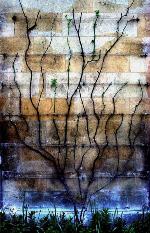 I don’t know about you, but I’ve always been interested in my past. My way past, that is. That past that was even before I was born. Well, of course I’m talking about my ancestors. Those very people who had a part in making me who I am today.
I don’t know about you, but I’ve always been interested in my past. My way past, that is. That past that was even before I was born. Well, of course I’m talking about my ancestors. Those very people who had a part in making me who I am today.
It used to be the search for my heritage took me to the library where I had to spend countless hours combing through books seeking information about my ancestors. But, today, there are so many more resources available for genealogy research. Let’s take a look at three such resources you should consider, both high tech and low tech.
The Internet
The internet has certainly simplified genealogy research. You no longer have to take a trek to the library and sit next to someone with strong perfume or cologne to find information about your ancestors.
What kind of information can you find on the internet?
- Surname Search
- Birth Records
- Death Records
- Marriage Records
- Census Records
- Cemetery Records
- Military Records
While searching on the internet you have the choice of using a paid service, or numerous free services, many specific to states or counties. For example, if you’re interest in Birth, Death and Marriage records for ancestors from West Virginia, you can go to http://www.wvculture.org/vrr and do a free search of their records. Many other states, counties and historical societies have similar websites.
Another way to utilize the internet is to visit genealogy communities or forums. Perhaps someone else is researching the same people, or knows someone who is. One such site is http://www.geocities.com/ohgenealogy/Index.html, where people have links to their personal genealogy pages, as well as a link to a genealogy forum. This site deals with ancestors from Ohio, but you can find similar pages for other states and countries by doing a basic internet search.
DNA Testing
Want to go even more high tech? Many people have turned to DNA tests to determine where their ancestors are from. A simple swab of the inside of one’s cheek (yep, just like they do on CSI) can yield DNA which will be compared with other’s DNA. Two types of DNA testing are Y chromosome testing (Y-DNA) and mitochondrial DNA testing. The Y –DNA tests look at paternal lineage while the mitochondrial DNA looks at maternal lineage.
Such tests can be used to determine such things as: which present-day African country you share your ancestry; which European maternal clan you share ancestry; percentage of Native American ancestry.
Oral History
From the extreme high tech to the extreme low tech. While it’s true some stories get distorted over many tellings, you still should talk to as many relatives as possible to get clues to your genealogy. Oral histories can give you information that no DNA test or records search will offer.
Oral histories, along with giving you information to then research through the internet, can also give you the family “color.” Oral histories make your heritage come alive and become more colorful. Maybe you have a horse thief in your family’s past. Now, nobody would want a car thief in their family now. But a horse thief in your family past who lived before the Civil War? Well, that’s just interesting.
Remember to organize all your information so that someday you can pass it down to future generations as well. You might want to purchase some genealogy software which can help organize and publish your information.
Remember, your past is a part of who you are today. Of course, your future is up to you.








Jante - 17 years ago
Become a member of your local Genealogy group (endless help from all members, good tips on how to research and get results)
Join the New Zealand Genealogy society NZSG they hold a library, have CDs on all death records, BDMs and other wonderful rescources and monthly magazine. first 12 mths $72, renewal after $60 per annum
NZSG Membership Dept P.O.Box 14036, Panmure,Auckland 1741. they have a website.